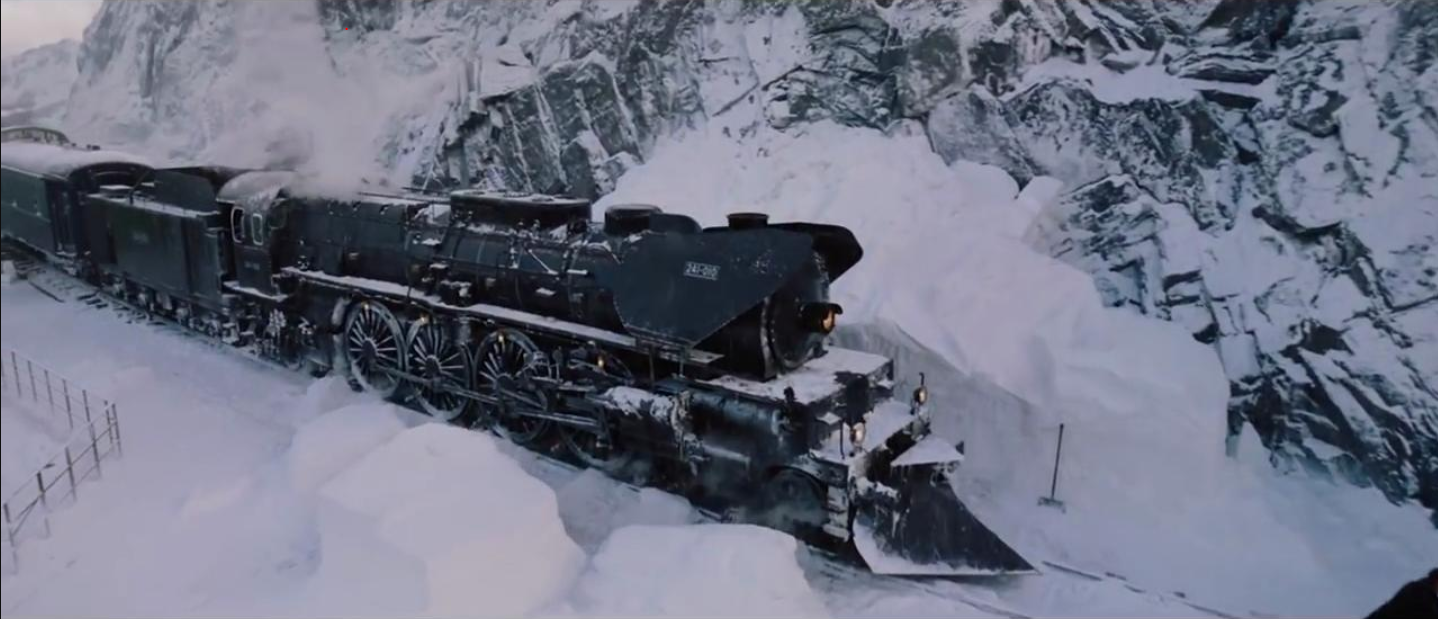So much fades and is lost with age that it’s hard to remember that some things are gained.
Anything that stays in people’s minds as its time passes will seem more important, more dignified. People being abjectly, completely stupid turn into figures of legend; people being silly become stately and brave as our standards and frames of references change. To put it another way, there’s tons of things from the past that seems serious or staid or conventional to us, but were intended and received as strange or silly or unusual.
Agatha Christie’s mysteries are an excellent example: Nearly a century after she thought them up, Hercule Poirot and Miss Marple don’t seem too far removed from other detective heroes of their time. When viewed in context, though, it’s not hard to see what set them apart, and what made Christie the best-selling author in living memory. She knew how to write for a mass audience, how to make a mystery surprising yet continually comprehensible, how to make each situation and suspect memorable, and keep the detective on a level where they were exactly smart enough to make their way through the case over the course of a book.
In other words, Christie’s stories were purposefully unreal: Heightened, mannered, simplified to the point of sometimes being cartoonish, and not meant to be taken seriously by any means.
Because she wrote in such a different time, though, this is easily lost on modern readers.
This explains the most fundamental decision director Kenneth Branagh and screenwriter Michael Green have made in their costume drama adaptation of Christie’s grand old Murder On The Orient Express: They’ve updated the unreality, made it a more modern sort of cartoon.

I mean, you wanna talk cartoonish, look at how the director of this movie made himself look, just ’cause he could.
Branagh’s characters chatter in silly accents and period clothes, mug to the camera as clues are discovered, deliver their lines to the back row. Poirot himself – played by the director, gets turned into a downright operatic figure, his curly mustache turned into an impossible, attention-grabbing monstrosity, soliloquizing on his own identity as a force of nature, predetermined by birth to do nothing but solve murder mysteries wherever he goes, like he’s a carrier for some kind of airborne crime-novel disease.
This fits well within Christie’s story, where Poirot is such a notorious, popular figure he only gets on the titular Orient Express (a train from the Western edge of the “Orient” in Istanbul to France, in case you were wondering) because he just finished solving one case in the Middle East, and has to take the train to solve another one in London. He’s waylaid by a murder1 that leaves the train stuck in the picturesque, snowbound Balkan mountains, where every passenger could be a suspect.

As a railfan (look it up), I’m quite satisfied with the train depiction in the movie – multiple angles, very long takes from all distances that give you a real clear look at the majesty of the Express.
The movie has a clever sense of which just-this-side-of-absurd details from the story to keep, and which to push further. In the plot, it pushes further, as Poirot has a chase with a figure in a billowy black cloak, the camera obligingly obscuring their face,2 and the eventual culprit nearly committing suicide while in the middle of anywhere between three and five dramatic conclusive speeches from Poirot, depending on how you demarcate.
By comparison, the characters are positively restrained: The dozen or so famous and recognizable actors are all juggled well, everyone getting a couple of very carefully allotted solo scenes where they’re interrogated by Poirot, and a few lines of their own within the larger group sequences.
This sort of timetable means it’s hard to select standouts or disappointments from the crowd, outside of your own personal preferences – which is why I’ll point to Daisy Ridley and Hamilton’s Leslie Odom Jr., as a pair of entangled upper-class Brits, who both look like they’ve been on the big screen for years despite each having just one movie appearance before this.

Leslie was a Tuskeegee Airman in Red Tails, the ill-fated project masterminded by George Lucas, while Daisy was in The Force Awakens, which broke box-office records because it was very specifically not masterminded by George Lucas.
Orient Express has been adapted before, and no one’s ever so much as considered changing the setting from Christie’s original mid-1930s Europe – the nature of the mystery is so rooted in the time it was written that it’s become timeless. If you look at the most impressively-cast version up ‘til now, you’ll see names that seem to blow Branagh’s cast out of the water: John Gielgud, Sean Connery, Ingrid Bergman, Lauren Bacall, Anthony Perkins. This is where you have to think of the context, though, and of the passage of time: Forty years is a long time for things to mature, to rise in our estimation. In these uncertain times, how well can anyone tell how Bergman will compare to Olivia Colman, or Perkins to Josh Gad? I feel this iteration of Orient Express, as silly as it is, deserves all the time it needs for you to take it seriously.
- Which thankfully gets rid of the most…shall we say malted member of the cast
- At one point a certain piece of clothing becomes a plot point, and everyone’s luggage is searched – where the billowy identity-hiding coat came from never comes up here








